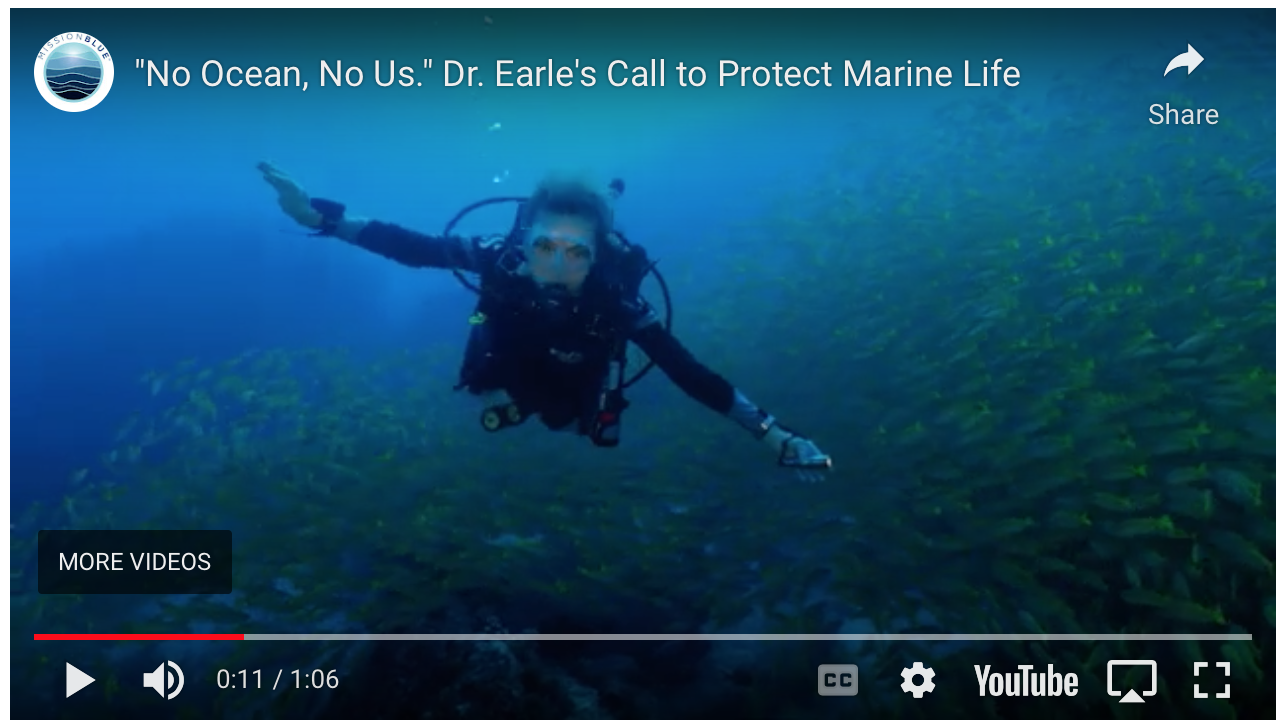Dr. Sylvia Earle's 87th birthday wish
Acclaimed oceanographer and National Geographic “Explorer in Residence” Dr. Sylvia Earle turned 87 on August 30. I had a chance to speak with her 15 years ago, and will never forget her warm sincerity, humility, and intensity. Her fervent birthday wish, published yesterday by her 501c3 nonprofit organization, Mission Blue, is that we all "ignite public support for a global network of Marine Protected Areas."
Hope Spots
Dr. Earle calls these ecologically significant areas of the ocean “Hope Spots” that comprise a potential global network large enough to save and restore "the blue heart of the planet." Earle cites progress: nearly three percent of the ocean is now safeguarded from human harm—up two percentage points from 2009. Today, "145 Hope Spots span the globe with champions, communities, partners, institutions and governments" all aligning to protect "Earth’s blue heart."
But, she reminds us, there is not a lot of time. "To reach the widely embraced goal of true protection of 30 percent of the land and sea by 2030, it is time to scale up!"
Now we know
Earle considers 21st-century citizens "the luckiest humans ever to exist, owing to knowledge that did not exist until now." Previously, we did not know "the perils of biodiversity loss and climate disruption”, the "damage we have caused," or "what to do to heal the harm."
Even funding pitches on the website of Mission Blue—California-based and founded in 2008—keep an inspiring emphasis on learning, sharing, and doing:
"Learn about the special places that are vital to the health of the ocean—and share what you learn with others."
Lower your carbon footprint: "Drive and fly less, use less electricity, carpool [more], choose renewable energy". All these actions will help reduce ocean acidification.
Choose not to eat marine wildlife: Overfishing is harmful; less demand will help "keep fish, mollusks and other edible marine life in the sea." (Of course, artisanal fisheries are crucial for many coastal populations.)
"Stop using single-use plastics: Plastic is clogging up waterways and poisoning marine creatures from turtles to fish and seabirds." Carry reusable water bottles and avoid using plastic straws and utensils.
"Use your own special talent to help fight for the ocean: Some have artistic skills, others are good with numbers or have a way with words. Everyone can make a difference by joining the company of others who share a common goal."
Act now
Ultimately, Dr. Earle sees communities of global nonprofits and their supporters, allies and friends as the best hope for future healthy oceans and humans. She describes each as "cause for hope that on our watch, we will achieve enduring harmony with nature—and, in so doing, the potential for peace among ourselves."
"We should act as if our lives depend on a healthy ocean—because they do."
Heartfelt thanks and cheers for Dr. Earle, and may her words inspire renewed action now.

